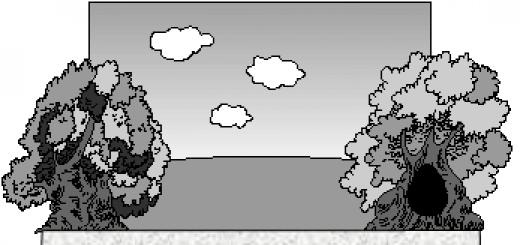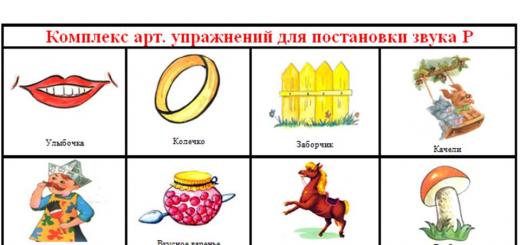As you know, every person has consciousness, that is, a biologically determined ability to realize the world and oneself (otherwise - self-aware). A person's awareness of himself as a specific physical entity that has a form and a number of other characteristics and is considered as a subject of self-assessment and judgments of others does not stop throughout a person's life. The development of self-consciousness is based on physical sensations and impressions that the body begins to experience even in the early stages of its ontogenesis.
The concept of self-awareness
Definition
In psychology, self-consciousness of a person is considered as a set of ideas of a person about himself, which is expressed through the self-concept, as well as an assessment by the person of these ideas, that is, self-esteem.
As part of psychological analysis self-consciousness can be considered as a complex mental process, the essence of which lies in the perception by a person of numerous images of himself in different situations of everyday life and activities, forms of behavior, in all ways of interacting with people around him and in combining these images into a single holistic formation - the concept of " I, own individuality. According to V. S. Merlin, "the object of self-consciousness is not reality, but one's own personality as a subject of activity."
The self-consciousness of a person (and children, in particular) was analyzed by S. L. Rubinshtein in his work “Consciousness and Its Limits” (1989). The researcher notes that the formation of a person's self-consciousness is a kind of stage in the development of consciousness, this stage is prepared by the development of speech and voluntary movements, the emergence of independence. In accordance with this, S. L. Rubinshtein proposes to consider several consecutive moments of the formation of self-consciousness in human ontogenesis:
- mastery of one's own body;
- the occurrence of voluntary movements;
- independent movement and self-service;
- comprehension of one's "I" in the past, present and future;
- acceptance of a formalized self-consciousness.
Thus, according to the researcher, self-consciousness begins to form from the very beginning. early age. However, some authors (L. I. Bozhovich, L. S. Vygotsky, I. S. Kon, M. Kuhn) do not agree with this point of view and argue that the formation of self-consciousness begins only in adolescence.
It is generally accepted that one of the first multifaceted studies of self-consciousness was undertaken by L. S. Vygotsky, according to whom the self-consciousness of a teenager is not only a phenomenon of his personality and consciousness, but also a special moment in the development of personality - from self-knowledge to self-attitude and self-regulation. Throughout the development of the personality, self-consciousness becomes more and more complicated, and as the number of images in its structure increases, an adequate, deep and integrative image of one's own "I" is formed.
According to R. Lang's point of view, self-consciousness includes not only awareness and acceptance by a person of himself, but also an understanding that he appears as an object of observation by someone else. Self-consciousness consistently passes through the stages of its development as the child becomes a person who consciously separates himself from the world of other people. Thus, in the general structure of the personality, self-consciousness is a complex integrative property of its mental activity. On the one hand, self-consciousness seems to sum up the results of the mental development of a person at its specific stages, and on the other hand, it appears as an internal regulator of behavior.
Self-consciousness, having taken shape, has an impact on all further development of the personality, being one of the most necessary internal conditions the continuity of this process, establishes a stable balance between external influences, internal feelings of the individual and forms of her behavior.
According to the figurative expression of A. N. Leontiev, a person is “born twice”, and the second birth is associated precisely with the formation of self-consciousness, which the researcher considered taking into account the relationship of the individual to himself, on the basis of the desire for self-improvement. In accordance with this, the most important role in the structure of self-consciousness is played by self-knowledge, self-improvement and the search for the meaning of life. However, other points of view on the structural elements of self-consciousness are offered in the scientific literature.
The structure of self-consciousness
The structure of self-consciousness is considered quite fully in the work of V. V. Stolin “Self-consciousness of the individual” (1983). The researcher proposes to consider the meaning of "I" as the main "unit of self-consciousness", containing cognitive, emotional and relational components. The general logic of V. V. Stolin’s reasoning is reduced to the understanding that a plurality of activities generates a plurality of meanings of the “I”, the intersection of different activities leads to actions, actions lead to conflicting meanings of the “I”, the conflicting meaning of the “I”, in turn, gives way to the development and further work of self-consciousness.
It is traditional to consider self-consciousness as the pinnacle of the human psyche, consisting of three closely related components: self-knowledge, self-control (or self-regulation), self-improvement. Self-knowledge, in turn, is formed by self-observation and self-assessment. Moreover, it is in self-esteem as one of the most important personal formations that the temporal dynamics of the development of self-consciousness is best traced. This is due to the fact that during the formation of self-consciousness, the emotional and value attitude of a person towards himself reaches its maximum intensity and depth. The variety of feelings and emotional states experienced by a person at different times in different life situations not only forms a special emotional “fund” of self-consciousness, but also lays the foundations for self-esteem, transforms it. At the same time, it is self-esteem that directs and predetermines the entire process of self-regulation, the result of which is correlated with the stability and dynamics of self-esteem.
When considering other points of view on the structure of self-consciousness, it is necessary to separately present the opinion of one of the followers of the school of D. N. Uznadze - A. A. Nalchadzhyan, who proposed using the following generalized scheme when describing self-consciousness:
Rice. 1. The structure of the self-consciousness of the individual (according to A. A. Nalchadzhyan)
Thus, the structure of self-consciousness is centered around the “I”, which, through stable structures of the I-concept, coordinates cognitive processes, regulating them and directing them to the knowledge of oneself and the world around. The manifestation of the activity of self-consciousness is also associated with situational I-images that “surround” the central “I” and its I-concept. In addition, in self-consciousness itself, that is, in the Self-concept, it is possible to distinguish several varieties of the elements that form it:
- elements of self-consciousness related to the scheme of the body of the individual;
- elements of the real (real) "I";
- elements of the ideal "I", etc.
Output
So, based on the foregoing, we can conclude that the structure of self-consciousness is not able to function without three the most important formations: self-image, self-esteem and self-attitude.
The consideration of its most important functions is closely connected with the question of the structure of self-consciousness.
Functions of self-awareness
Summarizing the work of leading researchers in the field of personality psychology, one can indicate that self-consciousness performs the following functions:
- regulatory function. With the help of self-consciousness, a person controls, organizes and regulates his own behavior and activities, which is manifested both in relation to himself and in his relationship with the outside world.
- The function of development and self-improvement (described in the works of K. A. Abulkhanova, Yu. B. Gippenreiter, A. A. Derkach, A. N. Leontiev, A. Maslow, V. S. Merlin, A. B. Orlov, K. Rogers, N. Rogers and others). This function is based on the consideration of self-consciousness as the most important tool for internal and external transformations of the individual. Thanks to the motivational potential, self-consciousness directs the personality towards qualitative changes, encourages the desire for self-realization, and also ensures the expansion of living space.
- existential function. It is connected with the fact that self-consciousness generates in the individual the desire to search for the meaning of life.
- integrative function. Self-consciousness takes part in the construction of a holistic, consistent inner world of a person, in correlation with the external experience of mankind (traditions, culture, values), as well as in establishing harmony between socialization and individualization.
- protective function. It manifests itself in the direction of self-consciousness to satisfy the desire of a person to maintain and protect a stable, familiar image of his "I".
except listed functions some researchers consider adaptive, motivational, organizational, projective and some other functions of self-consciousness, the essence of which, according to I. S. Kon, is that self-consciousness “does not just give the individual reliable information about himself, but helps in developing an effective life orientation, including a sense of ontological acceptance, wholeness, and self-respect. It is also important that all the functions of self-consciousness are interconnected, they can manifest themselves not sequentially, but simultaneously.
Self-awareness - psychological reality, consisting in the fact that a person is able to consciously perceive and relate to himself.
Rubinstein: the process of becoming a human personality includes the formation of his consciousness and self-awareness. A person, as a conscious subject, is aware not only of the environment, but also of himself in his relations with the environment. The unity of the personality as a conscious subject with self-consciousness is not a primordial given. The child does not immediately realize himself as I. During the first years, he calls himself by name, as those around him call him. Awareness of oneself as I is the result of development. Through interaction with the world (objective, social).
Attempts to identify criteria for self-consciousness:
Bekhterev . The simplest self-consciousness in the development of the child precedes consciousness, i.e. clear and distinct representations of objects. Self-consciousness in its simplest form consists in a vague sense of one's own existence.
Vygotsky, Rubinstein. Self-consciousness is a stage in the development of consciousness, prepared by the development of speech and voluntary movements, the growth of independence, as well as changes in relationships with others (2-3 years).
Psychoanalysis . The process of the birth of self-consciousness is the process of subjective separation from the mother; the discomfort caused by certain somatic processes decreases in the child; accordingly, the child begins to isolate the mother from the rest of the world, and separates himself from the mother.
Cohn, Spranger . The period of the emergence of the conscious self, no matter how gradually its individual components are formed, has long been considered adolescence and adolescence. Phenomenal manifestations of self-consciousness - the emergence of reflection, consciousness of one's motives, moral conflicts, moral self-esteem, intimization of inner life.
levels of self-awareness. Stolin. It can be seen from previous views that self-consciousness appears for different authors at different levels. Different systems of relations, including a person as a natural being, as an object and subject of social relations and human activities, gives rise to different aspects his self-consciousness, expressed in diverse and irreducible phenomena. Level structure of self-consciousness. At each level, self-consciousness acts as a feedback mechanism necessary for the integration of the activity of the subject and his activity. Various and content and functions at these levels: 1. Reflection of the subject in the system. its organic activity. 2. Reflection of the subject in the system of its collective objective activity and its deterministic relations. 3. reflection of the subject in the system of his personal development, associated with the multiplicity of his activities. With the leading role of the personal level, however, complex relationships between processes and their results attributable to different levels are possible. Accordingly, these three levels can be distinguished and units of self-awareness : 1. At the level of organic self-consciousness, this unit has a sensory-perceptual nature. 2. At the level of individual self-awareness - a perceived self-assessment and, accordingly, self-esteem, age, gender and social identity. 3. at the level of personal self-awareness, this unit is a conflict meaning, through a collision in an act of some personal qualities with others, clarifying for the individual the meaning of her own properties and signaling this in the form of an emotional-value attitude towards oneself.
self-awareness- the most highly organized mental process that ensures the unity, integrity and constancy of the individual. Self-consciousness is expressed in a person's awareness of himself, his own qualities, his "I".
The concept of self-awareness
epicenter is the consciousness of one's own "I", or self-awareness. Consciousness of the external world and self-consciousness arise and develop simultaneously and interdependently.
The most reasonable concept of the genesis of self-consciousness is the theory of I.M. Sechenov, according to which the prerequisites for self-consciousness are laid down in "systemic feelings". These feelings are of a psychosomatic nature and constitute an integral part of all physiological processes in ontogenesis, i.e. during the development of the baby. The first half of the systemic feelings is of an objective nature and is conditioned by the influence of the external world, and the second is of a subjective nature, which corresponds to the sensual states of one's own body - self-perceptions.
As the unification received from the outside, an idea of the outside world is formed, and as a result of the synthesis of self-perceptions, of oneself. Psychologists consider the interaction of these two centers of coordination of sensations of the external and internal worlds as a decisive initial prerequisite for a person's ability to realize himself, i.e. separate from the outside world.
In the course of ontogenesis, there is a gradual separation of knowledge about the external world and knowledge about oneself.
There are two main stages in the ontogeny of self-consciousness.
At the first stage a scheme of one's own body is formed and a sense of "I" is formed as an integral system of sensory self-identification. The feeling of "I" is based on social prerequisites, since the formation occurs on the basis of the reactions of people around.
At the second stage, with the improvement of intellectual capabilities and the formation of conceptual thinking, self-consciousness reaches a reflective level, thanks to which a person is able not only to distinguish his being from the being of the external world at the sensory level, but also to comprehend this experience in a conceptual form. Therefore, the reflective level of individual self-consciousness always remains, to one degree or another, internally connected with self-experience at the level of self-perception.
At the level of self-consciousness, a sense of inner integrity, constancy of the personality is formed, which in any changing situations is able to remain itself.
Self-consciousness is associated with a sense of oneness, which is supported by the continuity of his experiences in time: every mentally healthy person remembers the past, experiences the present, and has hopes for the future.
The main function of self-consciousness is make available to a person the motives and results of his actions and give the opportunity to understand what it really is.
Self-awareness and self-improvement
Today, at the turn of the third millennium, it becomes more and more obvious that the most important life task of every conscious person is constant self-improvement, development of their personal and professional qualities.
Dynamics modern society gives us perspective lifelong learning". The current socio-economic situation requires everyone to make constant efforts in the struggle for self-improvement, the continuity of their professional growth. In the conditions of growing social tension, the importance for each person of the ability to manage oneself, to use one's creative abilities, which today have become the most valuable capital, has sharply increased.
Plato's words sound very relevant today: "The greatest victory that we can win is the victory over ourselves."
As a result, there is a sharp increase the importance of correct self-knowledge their abilities, objective self-assessment, the ability to use a variety of self-regulation techniques.
Modern psychology proceeds from the position that the person himself, the bearer of consciousness, is included in the picture of the world that he forms. The specificity of human consciousness lies in the fact that it is bidirectional: first of all, outward, on external world, on the object, but at the same time it is turned inward, on the carrier of consciousness itself, on the subject.
True, the degree of expression of these vectors of consciousness in different people is not the same. People whose psyche is directed predominantly outward are called extroverts, and those with whom it is directed mainly inward, - introverts.
Consciousness and self-consciousness in the mental life of an individual are inseparable, although they are qualitatively unique. Consciousness as a whole can be realized only on the basis of awareness of one's spatial belonging to the external world. If consciousness is focused on the objective world as a whole, then the object of self-consciousness is the subjective world of the individual. In the process of self-consciousness, a person acts both as a subject and as an object of cognition.
Self-consciousness creates in us a sense of our own uniqueness, originality, and uniqueness. This feeling is constantly supported by the memory of our past, experiences of the present, hopes for the future.
Historically, self-consciousness, as well as consciousness as a whole, could originate only in the process of social relationships between people, in the process of production activity. Knowing himself in the process of work and communication, a person could regulate his behavior and at the same time change public relations. Self-consciousness, thus, developed in the process of generic and individual development of the person himself.
As it developed, self-consciousness began to act as a pivotal link, to participate in the regulation of all forms of human activity, its development and self-development. It is a necessary condition for the preservation of the mental qualities of the personality, the continuity of the main stages of its development.
In its structure, self-consciousness is a unity of three components:
- the process of self-knowledge;
- emotional self-esteem;
- the process of self-regulation based on the results of self-knowledge and self-assessment.
These components of self-consciousness are somehow present in each of his acts. And the first of them - self-knowledge - acts as the starting point, the basis of self-consciousness, the product of which is this or that knowledge of the individual about himself.
It is on this basis that the emotional and value attitude of the individual towards himself is formed, i.e. there is a second component of self-consciousness - self-esteem. She, in turn, starts the mechanism self-regulation, but the volitional sphere is effective, for example, the mechanism of professional self-improvement, professional development.
Self-knowledge - the process of self-assessment by a person, the initial moment of which is self-observation, introspection.
However, self-analysis from the point of view of modern psychology can only provide initial material for self-knowledge, which, in order to increase its objectivity, must be supplemented by other research methods. The tools for correlation and refinement of the results of self-knowledge are the totality of all forms of communication of a given person, experience of his professional and social activities.
Self improvement - expedient human activity for the systematic formation of positive qualities in oneself and the limitation or elimination of negative ones.
The basis of this activity is education and self-education, i.e. improvement of existing knowledge, skills and abilities. The starting point of self-improvement is self-knowledge.
The logically generic concept for self-improvement is the category self-organization - the central category of self-organization theory, or Synergetics is one of the newest complex general scientific disciplines.
Synergetics— a new interdisciplinary direction modern science, investigating the processes of self-organization of various systems (physical, biological, social). The effectiveness of self-knowledge and self-improvement largely depends on the degree of its involvement in the process. human communication.
Since the original own, specific category of self-consciousness is self-knowledge and all other main concepts of the process under consideration are based on it, this category should be considered in somewhat more detail.
self-knowledge, evaluating and regulating oneself go through a series of steps in the process individual development. At the pre-speech stage, self-knowledge is limited only to the awareness of one's physical being. Then comes the stage of self-awareness as a subject of actions, there is an understanding of their mental properties. Later, social and personal self-esteem is formed. assessment of their moral qualities.
The historical process of studying self-consciousness has become a very long, multi-stage process.
IN general view This problem was first posed in ancient world. It is known that on the pediment of the ancient Greek temple of Apollo in the city of Delphi was inscribed: "Know thyself." This aphorism belongs to one of the seven Greek sages, Chilo (6th century BC). The aphorism of Chilo was based on the great Socrates, recognized as the father of philosophy for making a sharp turn in philosophical thought from the problems of nature to the mysteries of the human soul.
Since then, this problem has become central to the entire philosophical science. So, I. Kant, describing the content of his philosophical system, wrote: “If there is a science that is really necessary for a person, then this is the one. to which I go, namely, to take a proper place for a person in the world - and from which one can learn how to be, in order to be a person.
It should be noted that human wisdom, including that which teaches us to manage ourselves, knows no boundaries of science, religion, art and everyday life.
In the Middle Ages, for example, "the work of an outstanding Christian philosopher Aurelius Augustine(Blessed), one of the fathers of the church, self-knowledge is an important aspect of understanding God. It is known that one of the main ideological principles of Christianity was the belief that "The kingdom of God is within us" those. in our soul.
In the rationalism of modern times, the principle of the direct givenness of the psychic turned out to be decisive in the study of self-consciousness. which suggests that the inner life of a person is revealed to his understanding as it really is (R. Descartes).
This humanistic attitude of the European Enlightenment to recognize the value and positive possibilities of self-knowledge and self-improvement was actively supported by many cultural figures in Russia. This attitude, which expressed the very essence of Russian national self-consciousness, is present in many works of Russian philosophers, historians, writers and poets of the 19th-20th centuries. Russian thinkers (I. Kireevsky, A. Khomyakov, N. Berdyaev) persistently substantiated the idea that the meaning of any work of a person in self-knowledge is to find the best correspondence between the abilities that each person possesses to one degree or another, and those real conditions their applications. given to him by fate. The work of finding ways for such coordination, they emphasized, was laborious, sometimes even tragic. But in the search and implementation of harmony between personal abilities and the real conditions for their application is
However, the optimistic idea of the limitless possibilities of the human mind in the process of self-knowledge, which prevailed in the Enlightenment, was first questioned by the founder of German classical philosophy I. Kant, who discovered the fragmentation of human cognitive ability, the difficulty of coordinating the cognitive, moral and aesthetic components of spiritual life.
IN Western philosophy 20th century self-knowledge has increasingly been interpreted as “experiencing oneself” (E. Husserl). It was emphasized that self-cognitive activity comes up against fragments of individual unconscious ideas (3. Freud).
The trend of modern philosophical thought, represented by such currents as hermeneutics, phenomenology, structuralism. associated with the rejection of understanding self-knowledge as a direct path to oneself. In the light of these attitudes, the problem of self-knowledge can be solved only with the help of certain "intermediaries", which can be the consciousness of the "other", the objective world, certain socially significant samples, standards.
The problem of self-knowledge
Exploring the same problem of self-knowledge, modern psychology focuses on the following tasks, without the solution of which effective human activity is impossible.
1. When solving the problem of self-knowledge, it is important to consider that in this case we are talking not about the knowledge of what is outside of us, but about the comprehension of what is within us; in other words, in self-knowledge the subject is not separated from the object, but merges with it. for man's thoughts about himself are an integral part of himself. Therefore, in this matter, one cannot look for easy ways.
2. But even the not quite exhaustive and not quite accurate results of introspection, self-assessment, which we can obtain at the very beginning of this difficult work, will nevertheless be of considerable value to us, will give a positive result, since to one degree or another there will be streamline our activities, giving them greater focus and thus increasing their overall efficiency.
3. Far from perfect at the very beginning, the results of the analysis of one's capabilities will, of course, need to be substantially corrected. And the most reliable tool for such adjustment, clarification of the results of self-analysis, self-assessment is active communication with colleagues, partners, close people, constant interaction, cooperation with them. It is communication that acts as the most reliable criterion for the correctness or fallacy of the analysis of one's abilities. Moreover, the higher, the more optimal the level of various forms of communication in a given subject, the more fully its information, interactive and evaluative functions are realized.
4. However, all this work of self-improvement will become more effective if it is streamlined, subordinated to certain goals. To do this, it is important for a person to understand which of the many abilities and inclinations that each of us has needs to be strengthened and developed in order to make their production and daily activities more efficient. To solve this problem of psychology, when developing psychograms of various professions, they develop various options for lists of those professional qualities that are most in demand in the modern labor market.
So, among the qualities necessary for a modern specialist, a leader of any level and direction are most often mentioned. for example, such as:
- the ability to communicate with people;
- Creative skills;
- good organizational and technical skills in their industry;
- pedagogical abilities, i.e. the ability not only to accumulate information, but also to transfer it to others in an accessible form, acting as an instructor, teacher;
- good knowledge in the field of mathematics, computer science, computer technology, their application in their field:
- skills of financial, investment activity;
- knowledge foreign languages, first of all, such “hot” ones as English, German, Japanese, which especially increases the chances of finding a good job;
- good skills in effective self-knowledge and self-improvement are very important, or self-management.
But it is equally important to have an idea about those qualities that negatively affect the activities of any specialist, manager, reduce its effectiveness. Among the qualities that impede the successful career of any employee, the following are often indicated:
- lack of clear life and professional goals;
- insufficient ability of a creative approach to business;
- fear of cases involving risk;
- a vague idea of their abilities;
- poor development of professionally significant skills;
- lack of energy, activity, weak willpower;
- inability to influence people, to train them;
- inability to self-management, self-development.
5. The growing complexity, diversity of production activities gives rise to another primary task of self-knowledge and self-improvement - a clear planning of personal activities, including personal life.
True, there is an opinion that planning, especially overly detailed, deprives our life of a significant part of its attractiveness in the form of its inherent spontaneity, unpredictability, gives rise to monotony and boredom, since it tries to squeeze living life within the strict limits of planned indicators. Of course, there is some truth in this position.
But we should not forget that an alternative to planning, which brings organization and order into our lives, can only be a state of disorganization and disorder, which gives rise to feelings of anxiety, anxiety and uncertainty in our ability to cope with the glory of various affairs and worries that suddenly pile on us, to plan which we didn't want to. It is precisely such situations that often cause severe stress, which, due to their wide distribution among executives called the "manager's syndrome".
6. Hence, another task of self-knowledge is the analysis of methods and techniques for constantly maintaining one's mental and physical health at the proper level. Next, we will consider methods for maintaining a high level of business activity, health, ways psychological protection from the danger of destructive stress.
The indicated problem is becoming more and more popular among a significant part of specialists and managers, who are becoming more and more aware of the simple truth that the greatest victory we can achieve is the victory over ourselves.
Of course, no one can be forced to self-improvement, neither by persuasion, nor by threats, nor by hypnosis, if a person does not have his own inner motivation for this. But our own imperfection usually takes us by surprise. A person begins to notice a lack of self-control in difficult situations: an increase in the volume and complexity of work; acute conflict, illness, age, etc. This is where it turns out that many simple things you need to study or finish your studies: concentration and mobilization, switching attention, emotional restructuring, relaxation, rest, sleep.
Moreover, it turns out to be difficult to manage oneself when it is especially necessary. The vast majority of people never specifically learn this. Therefore, it is not surprising that they come to exams unprepared?
Human wisdom has long taught us to manage ourselves. Between modern auto-training and ancient yoga and other old and new ways of spiritual and bodily self-improvement, there were many similarities, much more than differences.
But there is still no panacea here. But there is a living stream of thought that everyone can enter by passing through the crossroads of knowledge, where people speak about the same thing in different languages. These ideas can be summed up as follows:
- you cannot change yourself in the desired direction without constantly studying yourself:
- one cannot study oneself without trying to change oneself;
- one cannot study oneself without studying other people with equal interest, at least one person, but the more the better;
- one cannot study a person coldly, indifferently, one can truly know a person only by helping him;
- neither oneself nor others can be studied otherwise than in activity and communication;
- the study of man and self-study are fundamentally unfinished, because man, from the point of view of modern theory systems is an "open system", changing in many respects
- predictable; more than any other being, man
- 'becomes', not 'is'.
This is where some of the difficulties of self-knowledge, self-improvement, and self-management lie.
Self-improvement of the individual
Today, the reasons that at the turn of the third millennium led to the foreground in the life of every person, especially a qualified specialist, are becoming more and more obvious. tasks of self-education, self-improvement.
Self-improvement is an active, purposeful human activity for the systematic formation and development of positive and elimination negative qualities, the basis of which is the improvement of existing professional knowledge, skills and abilities.
The increase in the role of self-improvement of the individual, as studies show, occurs for the following reasons.
1. The rapid development of electronic sources of information, the increasing use of computers for teaching, the Internet system. Electronic means information allows you to deliver it anywhere and anytime. In such new education systems based on electronic sources of information as distance learning, Internet education, direct communication between the teacher and the student is reduced to a minimum and the role of the student himself in choosing the direction, pace and timing of training increases dramatically. As a result, the process of education is largely transformed into self-education.
2. An avalanche-like increase in the volume of information in all areas of human life, its constant and rapid updating. In this regard, the "shelf life" of education was sharply reduced, it turned out that it is a "perishable product" and there was a need for its constant renewal. If earlier 20 years of study was enough for a person for 40 years of professional activity, now the stock of professional knowledge acquired at school is barely enough for several years. Instead of the principle of "education for life", pedagogy and psychology began to be guided by the principle of "education throughout life", and its main form is self improvement.
3. The need for continuous, independent education is also dictated today by the rapid pace of technological progress, increasing competition in the markets for goods and services, which requires constant updating of manufactured products. For example, the Japanese firm Toyota makes an average of 20 changes to its products in just one day.
4. Along with the development of the system of basic - general and special education- strengthening the system additional education, advanced training and retraining of employees. The work of these educational structures is designed mainly for contingents of students on the job and is focused mainly on the organization of their professional self-improvement, self-education.
5. And finally, self-education and self-improvement today is increasingly mixed directly with production itself and is carried out day by day by the workers themselves at their workplaces outside of any specialized educational structures under the guidance of their direct managers, who are increasingly themselves becoming psychologists, educators and educators of their subordinates.
Psychological and pedagogical functions from the point of view of modern production management act as one of the most important professional duties of a manager of any level. Thus, Japanese textbooks on management today are called: “Management that revitalizes a person”, “Management that creates a person”, “Management that looks deeply into a person”, etc. And, of course, in these conditions of universal and continuous learning, any manager of modern production sees his first task in constant self-learning, self-improvement or in self-management.
Far-sighted researchers foresaw the possibility of such a qualitative shift in the organization of the process in the development of the human psyche already at the beginning of the last century. Thus, the famous German sociologist Georg Simmel(1859-1918) gave the following definition educated person: “An educated person is one. who knows where to find what he does not know.”
The prospect of "lifelong learning" presented to us by the development of modern society may seem both promising and somewhat sad. And since we are not able to change anything here, it remains only to recall the ironic judgment on this subject, expressed by the still immortal Kozma Prutkov: “Live for a century - learn for a century! And you will finally reach the point where, like a wise man, you will have the right to say that you know nothing.”
But if such a finale of our self-improvement is inevitable. then it is necessary to give at least some orderliness, organization to the very process of moving towards it. Here we are, obviously. again, one should rely on the equally profound statement of the same author about that. what: "you can not embrace the immensity." This maxim encourages the idea that in the process of self-improvement, first of all, it is necessary to reasonably limit the limits of one's activity, setting for oneself such realistic goals that would correspond to our abilities and capabilities.
Such a goal would be idea of the ideal of an exemplary worker, professional, masters of their craft, which in principle. like any ideal, it is unattainable, but which, nevertheless, is called upon to fulfill the task of ordering, organizing the beginning, the ultimate goal of all our self-improvement activities. What should this ideal be in order to combine, as far as possible, the contradictory features of ideality and reality?
In modern psychological and pedagogical literature, this target model of a perfect worker, a specialist who has reached the heights or an act, as they say ancient Greeks, is depicted as a list of characteristic features, without which it is impossible to imagine an effective worker today.
Among the characteristics of such an ideal professional, a master of his craft, the following set of qualities is most often indicated, which can be divided into two blocks: personal and professional qualities.
Personal qualities, inherent in people who have reached the heights of professional excellence, which distinguish them from people who are at a lower level of development:
1. energy, meaning that the ideal worker is highly active, hardworking, tireless: he is full of desire to succeed both in his professional activities and in his personal life. This quality can characterize both an effective ordinary worker and a leader.
But this quality alone is not enough, especially for a leader. constantly dealing with people, encouraging them to quality work. Therefore, among the personal qualities of an ideal employee, they also indicate
2. sociability, i.e. desire, willingness to lead others, the ability to take responsibility for others, and not just for yourself. For a manager, this quality is not just one of many, but his main feature, which determines the effectiveness of all his activities;
3. strength of will another necessary quality of an effective worker, which is understood as the ability to show firmness and consistency not only in one’s own business, but also the ability to inspire confidence in doubters, without which it is impossible to convince people of the correctness of the chosen goals and achieve results;
4. honesty, decency, moral qualities; this means that an exemplary worker, whatever position he may hold, must be distinguished by the unity of word and deed; without this quality it is impossible to ensure the trust of people, the possibility of cooperation with them. In the Code of 10 commandments proposed today by the Russian Orthodox Church for both bosses and ordinary workers, the following moral standards are proposed:
- appropriating someone else's property, neglecting common property, not repaying the worker for work, deceiving a partner, a person violates the moral law, harms society and himself:
- in competitive struggle it is impossible to use lies and insults, to exploit vice and instincts.
5.extraordinary level of intelligence. He must be able to collect, analyze large amounts of information and use it both to solve the problems of his organization and for personal self-improvement.
Of course, the listed qualities are largely predetermined in each person at the biological, genetic level, but they can still be corrected, developed, strengthened to one degree or another during a person’s life, his work, will, desire for self-improvement.
But apart from the above personal qualities, an effective worker must also have a certain set of professional knowledge, skills and abilities. If the personal qualities of an exemplary worker are universal, more or less similar for workers of all categories, then professional signs are specific for representatives of each profession, each specialty. The common between these two blocks of qualities is only that they equally need constant improvement and development.
The general direction of such development for each profession is established state standards special education. which establish a list of special knowledge and skills for each specialty. Of course, for a physicist, biologist, engineer, manager, this list is not the same.
But equally, you can become a high-class professional only if you master both of these blocks of qualities: personal and special.
In connection with the selection of the qualities of an exemplary specialist, an exemplary worker, one important remark should be made in conclusion of the consideration of this issue: the presence of the entire complex of personal and professional qualities in an employee creates an opportunity. but by no means guarantees him the obligatory success in his activity. Much in practical activity depends on the ability to use one's abilities in relation to a specific production or life situation. Taking into account the specifics of a particular situation is the most important requirement for a modern effective specialist.
Having thus determined the dual goal of self-improvement, taking into account the conditions for the successful application of one's abilities, it is equally important to choose the right ways, methods, methods, achievement of the goal.
Every farmer, before starting to sow anything, tries to find out what kind of land he is dealing with, what can grow on it and what cannot. In the same way, any person, before embarking on the difficult task of self-improvement, must begin by compiling a kind of register of his physical and mental qualities, his capabilities and his limitations or. as psychologists say. with introspection or self-knowledge.
Self-knowledge - this is a person's assessment of himself, this is the awareness of his interests, motives of behavior. The difficulty of this task is due to the fact that it involves an attempt to look at one's inner world as if from the outside, an attempt to connect the subject and object of observation. Therefore, the results of introspection are always not quite accurate.
However, as is known from the history of philosophy, the great Socrates considered self-knowledge to be the basis of all human morality and wisdom.
However, this task turns out to be so difficult that it is, perhaps, comparable only to the one that Baron Munchausen faced when he got into a deep swamp with his horse. True, as is known from his stories, he, grabbing his hair, managed to pull out of the swamp, not only himself, but also the horse.
As a result of self-observation, we need to extract from the depths of the psyche the qualities hidden in it, and so on. so that the results of our work are somewhat more credible than the description of the exploits of the famous German baron.
What do you need to do to get more or less objective results analysis of their own physical and mental qualities?
Psychologists believe that for this you need to use the following methods recommended by science:
1. The first of them is to assess the accumulated professional and life experience as impartially as possible. Such an assessment will somehow give an answer to the question about our strengths, for example, such as activity, honesty, willingness to take risks, sociability, the desire to improve our social status, etc., as well as about our weaknesses, such as insufficient energy, unwillingness to take risks, fear of the new, etc. The richer your life experience, the more diverse labor activity, the more material will be at your disposal to give yourself a truthful, and not embellished self-assessment. According to I.V. Goethe"Man knows himself only insofar as he knows the world."
However, with the help of this technique alone, it is difficult to achieve complete objectivity of the results of introspection. Therefore, psychologists recommend other methods of self-knowledge, including:
2. testing, trainings, business games. With the help of these techniques, which are becoming more widespread as methods of teaching, control and self-knowledge, more objective results can be achieved. These tools are now widely used to determine the psychophysical characteristics. knowledge, experience, skills of the subject. Thus, tests are widely known that include several hundred questions and, on their basis, determine the level of intelligence (for example, the well-known test of the level of intelligence of an English psychologist Hans Eysenck and etc.).
(But these methods, according to psychologists, are still not completely reliable);
3. Therefore, it is also important to take into account the opinions of other people about our strengths and weaknesses, especially the opinions of those who have known us for many years: relatives, friends, workmates:
4. Finally, the results of self-knowledge will be the most reliable. if they are constantly checked, supplemented, refined, corrected in the course of everyday work, cognitive, social activities person. “How can you know yourself? Goethe asked and answered: “Thanks to contemplation, this is generally impossible, it is possible only with the help of action.” Try to fulfill your duty, and then you will know what is in you.
Of course, in order to seriously engage in this difficult work. its importance must be well understood.
It must be remembered that the installation of a high value of self-knowledge is one of the central not only in the West, starting from Socrates but also in the Russian cultural tradition.
It is also appropriate to recall that one of the main ideas of Christianity, which is especially pronounced in Orthodoxy, is the conviction that " The kingdom of God is within us."
Russian thinkers have long seen the meaning of all human work in self-knowledge as finding the best correspondence between the abilities and talents that each person possesses and the real conditions for their development, improvement, which are given to him by fate, the conditions of his real life. This work is very intense, difficult, sometimes even tragic. But in the search and implementation of such harmony between personal abilities and real possibilities, according to the tradition of Russian self-consciousness, the highest meaning of human life.
Based on the results of a comprehensive self-assessment, a more or less accurate picture of our negative and positive qualities is formed, and this is the result of self-knowledge, which can be taken as the basis. self-improvement plan.
Clear planning is another important prerequisite for successful self-improvement. If, under traditional forms of education, the task of planning was carried out mainly by the school, then under the conditions of self-education, planning becomes the student's own task.
Planning is a kind of project for placing the processes of work, study, and other forms of activity in time for a more or less long period: from one day to the whole life of a person.
The main purpose of planning is to ensure rational use personal time. It has been established that an increase in the time spent on the planning process itself results in significant time savings in general.
As experience shows, the only alternative to planning can be disorder, confusion and chaos, both in public and private life.
Planning includes a number of steps:
The work of drawing up a plan is a type of work that is somehow present in any human activity, including in self-improvement activities; this is a whole set of actions and operations, among which such things as the study of time spent on certain types of planned cases, consultations with people who have significant planning experience are of particular importance. development of the plan.
Planning of personal work, training is a whole system that includes a number of subsystems: long-term plans that specify their medium and short-term plans.
Planning begins with a long-term plan that can span several years or even your entire life. In medium-term plans, drawn up for a period of one year to one month, events are planned, as a rule, held regularly every year or every month, short-term plans are plans for today or tomorrow, covering time from one day to a week. All these types of personal plans, of course, must be consistent with each other.
An obligatory component of this system is control, verification of results, comparison of "plan-fact". Moreover, this must be done at the end of each planning period.
It is also important to always leave a reserve of time: in this case, it is recommended to follow the rule: 60: 40, i.e. the plan should cover only 60% of the time, and the remaining 40% should be set aside as a reserve for unexpected cases. Otherwise, you may find yourself in the tragicomic situation in which one business woman found herself when her husband accidentally discovered the following entry in her diary: "Saturday, 23.00 - sex with her husband."
The success of work on the implementation of the adopted plan, as established by research, largely depends on the ability to classify the planned tasks according to their degree of importance, i.e. from the ability to take into account that not all things that you have are equally important, just as not all branches of an apple tree bear the same fruit; the principle of planning, requiring the alignment of all cases according to their degree of importance. sometimes referred to as the ABC principle. these letters denote those three most important things that today need to be done in the first place, relegating all the rest to the background.
It is also necessary to plan your working day every day, defining a list of tasks and actions every morning. Moreover, this list should be realistic, feasible and not include more than five to seven cases. You should always start its implementation with cases of the category ABC.
It is important to always remember that the main goal of planning is a concrete result. Therefore, the results and results of planning should be constantly monitored both in terms of timing and quality.
Having learned to plan, a person will be able to change not only his life for the better, but also his life, to achieve the highest level of self-improvement.
However, both the work of self-knowledge and the planning of self-improvement activities will be jeopardized if, at the same time, you do not pay due attention to your health, psychophysical regulation.
English self-consciousness) - a person's awareness of himself as an individual. Human consciousness m. b. directed either at the external world surrounding a person (external orientation), or at the subject himself (this is S.) - the body, behavior, needs, feelings, character, including consciousness itself (introspection, reflection). See also Intention.
S. is sometimes confused with forms of direct self-reflection in the form of self-perceptions and well-being, which, of course, are important and necessary for the functioning and emergence of S., but are not sufficient. A. N. Leontiev pointed out the need to distinguish between 1) knowledge about oneself (knowledge of oneself) and 2) self-awareness. IN general case the first cannot be called C, because "knowledge, ideas about oneself are accumulated already in early childhood; in unconscious sensual forms, they, apparently, also exist in animals" (Leontiev). Sensual forms and sources of knowledge m. b. different: sensation, perception, emotion, memory, imagination, visual-effective thinking. Representation (expression) of knowledge in a sign-mediated and socially normalized form leads to awareness. Initially, the process of awareness is entirely included in the cumulative and joint activities, within which, for the purpose of communication, individual experience (perception, thinking, emotional experience, etc.) is expressed in meanings, thanks to which the subject can become aware of it. Thus, in a strict and narrow sense, S. is one of the levels (processes and results) of a person's knowledge of himself as an individual, including his position in the world and his relationship to various phenomena and objects.
It is also not necessary to identify S. and I-concept. S. partially includes the content of the "I-concept", which in this case acts as a more or less stable (stable) part of S, but only to the extent that the I-concept is potentially realized. This distinction has, first of all, a purely theoretical meaning, since the methods used to identify the I-concept are, for the most part, just limited to its self-conscious part. Therefore, practically everything that is known about the development and functions of the self-concept, including the development and functions of self-esteem, is permissible, without fear of making a mistake, to transfer to S. However, S. includes not only stable knowledge, but, in addition, the process and result of continuous (perceptual and mental) monitoring of the states and activities of the subject.
A number of authors distinguish 3 components in S.: self-knowledge, self-assessment, self-regulation. In this case, no distinction is made between different levels of self-knowledge (see Leontiev's term above), as well as self-esteem and self-regulation. In particular, the use of the term "self-regulation" (in the context of S.) leads to conceptual confusion, since traditionally, self-regulation refers to processes that occur independently of the consciousness and will of a person: for example, self-regulation is carried out in a homeostatic system of regulation internal environment organism. At the same time, there is no doubt that S. is a necessary condition and a control component of any conscious human activity.
Even I. Kant outlined the fundamental connection between the concepts of personality and C: "The fact that a person can have an idea of \u200b\u200bhis Self infinitely elevates him above all other creatures living on earth. Thanks to this, he is a person ..." On the same connection indirectly indicates the fact that in some contexts the synonymy of the terms "S." is quite acceptable. and "personality". Closely approaches such representation and almost generally accepted understanding of S.'s genesis at the child; The use of the personal pronoun "I" (and other reflexive words) is traditionally considered an operational sign of S.. But this is only the starting point. Obviously, S. both in content and operationally goes a long way of development. According to L. S. Vygotsky, S.'s development includes approximately the same stages as the development of higher mental functions (both in ontogenetic and historical aspects); the same logic applies to him: first, other people cognize and realize the properties and states of the given subject; orientation to the internal properties and states of the child is included by adults in the content of aggregate and joint activity; then the subject, in response to external challenges, tries to express himself in the language in which he is being spoken to; as he masters the sign means of self-expression, he becomes able to turn the acquired means of self-expression on himself and for himself; thus, before S. becomes an individual fact, it already exists as a fact for others; in turn, the dialogical nature of S. is preserved in its individual form.
In addition, Vygotsky’s works outline a multi-stage trajectory of the meaningful development of S. and the self-mastery associated with it: from (possibility) awareness of perceived physical qualities, movements, and objective actions to (possibility) awareness of thought processes, emotional-motivational processes, and personal qualities. It is obvious, however, that the development of S. does not end even with the appearance in school age reflections. This process has no end at all: because the development of S. occurs along with the incessant development of its object and subject (personality), and also because full consciousness and self-consciousness is tantamount to divine omniscience. See also Mirror I. (B. M.)










